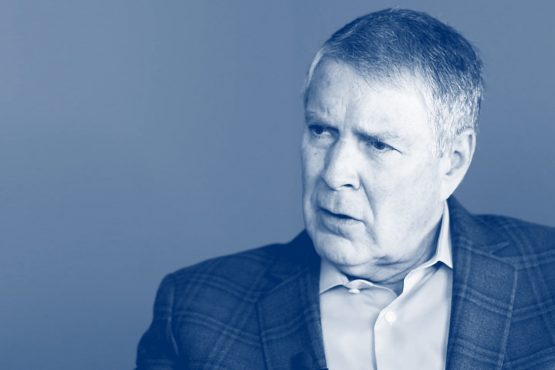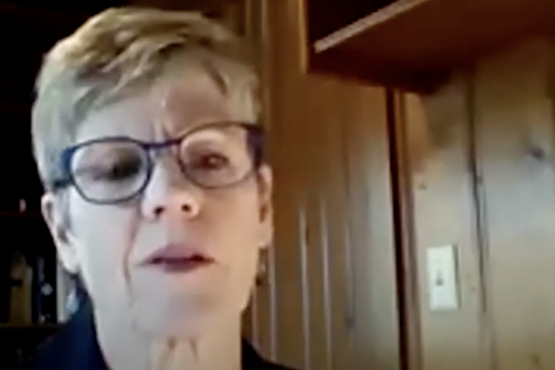Welcome to A Second Opinion podcast where we are rethinking American health. I’m your guest host, Dr Kavita Patel.
Now, you might be surprised to hear a new voice this week, but like you I’ve been following Senator Frist’s podcast throughout the entirety of the first season and I have really enjoyed reacquainting myself with colleagues and learning new perspectives from leaders on the cutting edge of healthcare policy, medicine and innovation. A little bit about myself, I’m a nonresident fellow at the Brookings Institution and an advisor to the Bipartisan Policy Center. I’m also a practicing primary care internist in Washington DC and previously served in the Obama administration as the Director of Policy for the Office of Intergovernmental Affairs and Public Engagement in the White House. I live in Washington DC and know for a fact that this podcast is a source of conversation amongst my peers. I’m also proud to be a long time friend, mentee and colleague of Senator Frist, so I am very excited that he invited me to participate with him on the podcast.
As I was listening to the first season I made some notes on some of the most important insights that I learned from the senator’s interviews with his guests. From there I created a compilation of what I perceived to be some of the more standout moments. This episode centers around one of my favorite topics, policy as it pertains to health and healthcare. Emily Evans is the Managing Director of Health Policy for Hedgeye Potomac research, serving as a translator and tour guide for investors seeking to read the tea leaves coming out of Washington DC. She had previously spent 20 years financing healthcare facilities in the tax exempt sector for JC Bradford and Avondale partners.
Emily Evans: It burdened the system with so many more costs.
Senator Frist: Yeah.
Emily Evans: So where you end up is higher deductibles, narrow networks, less coverage, and coverage sys- benefit systems that work like Medicare Part D, for a great example.
Senator Frist: Right.
Emily Evans: They don’t really work anymore.
Kavita Patel: Dr Cara James is the Director of the Office of Minority Health at CMS, the centers for Medicare and Medicaid services where she’s also co-chair of the Rural Health Council. She’s a nationally recognized expert in health disparities and health equity, and improving health outcomes for vulnerable populations.
Cara James: For the first time in our Medicare program, in the post acute care setting, we will begin collecting some standardized data around some of the social determinants of health.
Senator Frist: Yeah.
Cara James: It’s a big mission. It’s one of the things that keeps me excited about the work-
Senator Frist: Yeah.
Cara James: Because it’s almost not a question of what to do, it’s a matter of where to start?
Senator Frist: Yeah.
Cara James: The maternal mortality rate for African American women is four times that of non Hispanic White women.
Senator Frist: Yeah.
Cara James: That’s a powerful statement. What’s going on with that rate?
Senator Frist: Yeah.
Cara James: It shouldn’t be happening, so how do we use that and then develop those solutions to close those gaps?
Cara James: Our process is a three part path to equity that starts with data. Number two is our developing and disseminating solutions, and the third big bucket is implementing sustainable action, making it standard operating procedures.
Senator Frist: Mmm (affirmative).
Kavita Patel: The third is Darin Gordon. For 10 years Darin ran Tennessee’s Medicaid program, TennCare, an $11 billion health care enterprise that provides services to over 1.5 million Tennesseans. During his time, Tennessee led the way in adopting managed care and experimented with innovative ways to reduce costs while improving care.
Darin Gordon: I think the reason you’re starting to have the conversation about what else can be done to help folks that don’t have access to insurance, and obviously one of the large tensions is the affordability aspect of it.
Senator Frist: Right.
Darin Gordon: And lately you are hearing, it’s like, well, if you look at purchasing healthcare for an individual, of the different products that are out there, Medicaid, in most States, because of their purchasing power, how they have managed a program so effectively and officially, it is typically the most cost effective path, and so if you were able to create a pathway where an individual who’s not eligible for the program but may be able to buy into the services and the network that you have developed, that they may be able to do that at a price point that is more competitive than some of the other products that are out there.
Darin Gordon: Most recently the federal government approved a waiver. They allowed North Carolina basically to experiment, do something, and they actually put money behind it, which is really the first time we’ve seen this in their Medicaid program-
Senator Frist: Right.
Darin Gordon: To allow them to experiment and see if I truly invest in some of these key areas, the social determinant needs, will we see an improvement in the health outcomes and in lowering costs on the heath care side?
Senator Frist: Right.
Darin Gordon: So that is, in the many years that I’ve, over 22 years I’ve been dealing with Medicaid, that’s a very large step forward, and we’ll see where it goes from there.
Senator Frist: [crosstalk 00:05:08].
Darin Gordon: I’m anticipating that they will, that won’t be one and done, that’s the last date we see that and wait for the results, I think the federal government, and they should be applauded of stepping into this and saying, “Okay, we all believe this, but we do need to test out. Let’s put some money behind it and let’s see where it goes.” And so, that’s something to watch.
Kavita Patel: The next one is Aneesh Chopra, who is best known as our nation’s first US Chief Technology Officer appointed by Barack Obama in 2009, whom I had the pleasure of serving with in the White House. Today he serves as President of Care Journey, which harnesses open data methodologies and APIs to provide market intelligence and actionable insights to help payers and providers.
Aneesh Chopra: So the role the CTO played and continues play in the Trump administration bi-partisan was three things, making sure that the data held by the government that affects health would be accessible for the public, the second, that we start to think about the internet as the architecture for how to share information as opposed to the klugey way we try to do it in health systems today, and then third, I kind of was looking where the puck was heading, we had this idea of a care delivery reform strategy and new payment models, that if the IT folks could marry up to those new models we could do a faster loop of what the new workflows are going to look like so that the IT was ready on the standard side. So that was the role and the swimming lane we tried to play in.
Kavita Patel: And last but certainly not least is Senator Lamar Alexander, who is a two term Governor of Tennessee, a former US Secretary of Education under George H W Bush, and today chairs the Health Education Labor and Pensions Committee in the United States Senate. He is an enigma in today’s political climate, achieving major bipartisan legislative victories while Washington is gridlocked by partisanship. He is one of the most powerful people in healthcare today and also one of the most respected, pragmatic and productive members of Congress.
Lamar Alexander: Well, there was a sixth player, Bill-
Senator Frist: [crosstalk] able to do it at that time.
Lamar Alexander: And I think it’s important for people who might be watching to know that that was you. For example, Head of the Bipartisan Policy Council, and you were creating public support for what we were trying to do in precision medicine and speeding things up, and so the outside groups, the hospitals, the patients, the person, Doug Oliver, you introduced me to him, his sight was restored by regenerative medicine procedure.
Senator Frist: Yeah.
Lamar Alexander: He became the most effective lobbyist for some sensible provisions to encourage regenerative medicine. That outside support was really the sixth man or sixth woman in the field.
Senator Frist: Yeah.
Lamar Alexander: Sort of like the cheering crowd at a football game.
Senator Frist: Yeah.
Lamar Alexander: It wouldn’t really have happened without the home team crowd.
Lamar Alexander: We’ve had two hearings on the community health centers where 27 million Americans get their primary care, their everyday. Senator Murray, the democratic leader of our committee and I put a bill in for five year funding for that. We did it together. We did it early. We had a bipartisan hearing. We want to make sure that in September those health centers don’t run out of funding.
Senator Frist: Yeah.
Lamar Alexander: So we’re already at work on that. Senator Murray and I also sat down with Senator Grassley and Wyden who run the Finance committee, which has a lot of the jurisdiction in healthcare, and we said, “Is there anything that the four of us can agree on in order to reduce healthcare costs?”
Senator Frist: Yeah. Yeah.
Lamar Alexander: Which some witnesses say as much as half of what we spend on healthcare is unnecessary. If that’s even half true, is there anything we can do? So we’re working together to see if we can think of one or two big things, six or eight smaller things that we can do together over the next two years, regardless of all the tweets and the politics in the election as it goes on.
Kavita Patel: Thanks for listening to today’s episode of Second Opinion podcast. You can subscribe to a second opinion on Apple podcasts or wherever you are listening right now, and be sure to rate and review A Second Opinion so others can discover what you’re already enjoying. You can get more information about the show, it’s guests and sponsors at ASecondOpinionPodcast.com. I’m Dr Kavita Patel and I look forward to being with you again soon.


